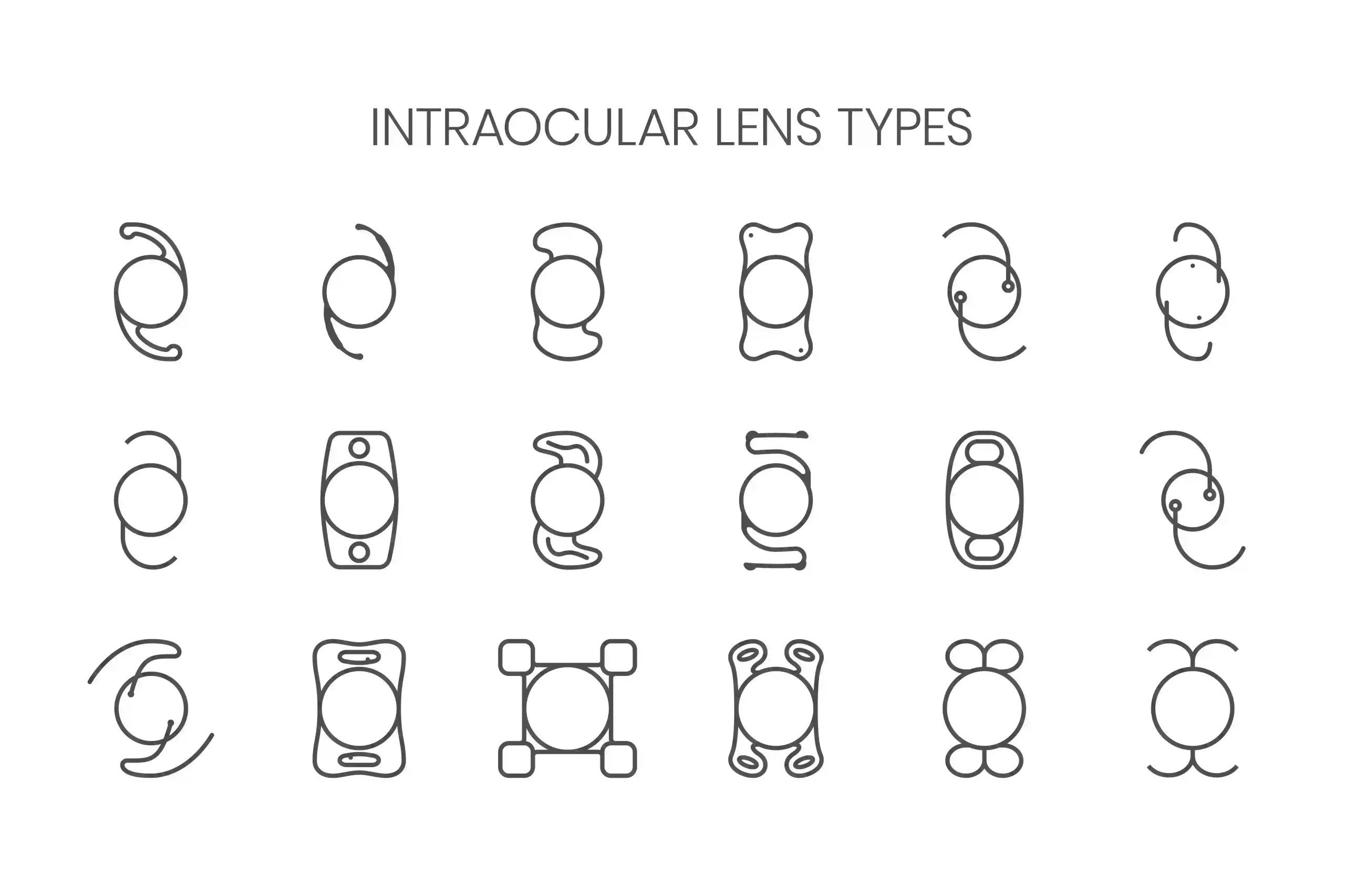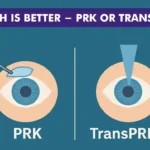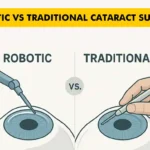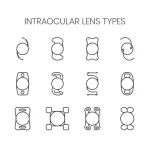When the eye’s natural lens grows cloudy, usually due to cataracts, it influences your lifestyle and eyesight. Intraocular lenses (IOLs) provide the latest solution. Synthetic lenses are implanted in place of the cloudy natural lens, restoring the sharpness of vision.
With so many options, how do you decide on the best one? Let’s learn about the various kinds of intraocular lenses, their advantages, and factors to be kept in mind, so you can decide the best plan of action with your ophthalmologist.
Purpose of Intraocular Lenses
The primary purpose of an IOL is to restore normal vision after cataract surgery. However, IOL lenses can also do a lot more; they’re also implanted in refractive lens exchange and vision problems like presbyopia and astigmatism.
Selecting the right IOL can minimise your dependence on glasses and enhance your overall quality of life.
Types of Intraocular Lenses
There are several intraocular lenses, which are designed for other purposes. The following are the principal types:
- Monofocal IOLs
- Multifocal intraocular lenses
- Toric intraocular lens
- Accommodating intraocular lens
- Extended Depth of Focus (EDOF) IOLs
Each type works in its own way to help correct vision. Your lifestyle, eye health, and preferences all play a role in choosing the best fit.
Monofocal Intraocular Lens
This is the most commonly used IOL. A monofocal lens provides clear vision at one set distance – usually far. You’ll likely need reading glasses for close-up tasks.
Benefits:
- Clear vision at a single distance
- Lower cost compared to premium lenses
- The results are reliable
Drawbacks:
- Does not improve intermediate or near vision
- Glasses are frequently required for everyday tasks
They are most commonly set for correcting towards one focus, unless the patient chooses monovision correction, which corrects for one distance.
Multifocal Intraocular Lenses
Multifocal intraocular lenses are used to provide you with clear vision at more than one distance – mid, near, and far. They work with rings inside the lens to split light for different focal points. Multifocal lenses also include trifocal lenses, where there are 3 separate foci – with multiple rings, each ring focuses at a different place.
Pros:
- Less dependence on glasses
- Improved vision at several distances
Cons:
- May produce halos or glare, particularly at nigh
- Reduced contrast sensitivity to some degree
Multifocal intraocular lenses are ideal for those who wish to minimise glasses dependence, but not necessarily so if unobstructed night vision is paramount.
When deciding between Monofocal vs multifocal IOLs, the key difference lies in how each lens supports your daily visual needs, from driving and computer use to reading without glasses. Your decision should reflect your lifestyle priorities- whether you’re comfortable with wearing reading glasses or prefer greater visual independence.
Trifocal Intraocular Lenses
Trifocal intraocular lenses are an advanced form of multifocal IOLs. They are designed to offer clearer vision at three distinct distances—near, intermediate, and far—by distributing light more efficiently across multiple focal points. Trifocal lenses are especially useful for those who want greater visual independence after cataract surgery or lens replacement.
Pros:
- Enhanced visual clarity at all three distances
- Less reliance on glasses, especially for reading and computer use
- Smooth transition between focal points for daily tasks
Cons:
- Like multifocal lenses, they may cause halos or glare in low-light conditions
- Can be costlier than standard multifocal lenses
- Not ideal for those highly sensitive to contrast loss
Trifocal intraocular lenses are well-suited for active individuals who perform a range of visual tasks at different distances. These include reading, screen time, and outdoor activities, and these people prefer to avoid using glasses for most of them.
Toric Intraocular Lens
A Toric intraocular lens is specifically designed to correct astigmatism – a condition resulting from a non-spherically shaped cornea. Such lenses contain different powers in different areas of the lens to correct this condition.
Benefits:
- Corrects astigmatism and cataracts
- Improves uncorrected distance vision
Disadvantages:
- Requires highly accurate alignment of the lens during surgery
- Does not improve near vision unless as part of a combination solution
This lens is best suited for those already with astigmatism and need improved distance vision, regardless of glasses.
Accommodating Intraocular Lens
An accommodating intraocular lens aims to provide a range of clear vision by leveraging the eye’s natural focusing mechanisms. Accommodating IOLs are designed with flexible haptics or unique designs that allow them to change shape or position within the eye in response to the ciliary muscle’s contractions and relaxations, mimicking the natural lens’s ability to adjust focus for different distances.
Advantages:
- More natural transition between distances
- Simplifies reading and driving without bifocals or reading glasses
Limitations:
- The range of focus is narrower than with multifocal lenses
- Not ideal for all shapes of eyes or conditions
- No present-day design of accommodating intraocular lenses delivers satisfactory results. Future designs may hold some promise.
This dynamic response helps to shift the focal point, providing improved vision for near, intermediate, and far tasks.
This option is ideal for active people who appreciate seamless vision for everyday activities, from reading to driving.
EDOF (Extended Depth of Focus) Intraocular Lens
EDOF stands for Extended Depth of Focus. An EDOF intraocular lens is an advanced type of IOL designed to provide a continuous range of vision, especially from distance to intermediate. It works by elongating the focus zone rather than creating multiple focal points like multifocal lenses. EDOF lenses provide a smooth range of vision, especially for intermediate and distance tasks. They reduce common side effects like glare and halos seen with other lens types.
Benefits:
- Clear vision from mid to far distances
- Less glare and fewer halos than multifocal lenses
- Suitable for everyday tasks like driving, screen use, and reading
Things to Consider:
- Reading glasses may still be needed for small print
- Near vision may be slightly less sharp than multifocals
EDOF lenses are ideal for people seeking dependable, low-disturbance vision across most daily activities. With computer usage rising, EDOF lenses are apt for those who experience strain when looking at digital devices. They offer visual comfort, especially in low-light or night-time conditions.
Selecting the Best Lens
Deciding among the numerous intraocular lens types depends on several considerations:
- Your everyday activities and visual needs
- Pre-existing eye conditions such as astigmatism or dry eye
- Tolerance to visual side effects like glare
- Cost and insurance coverage
- Readiness to wear glasses for some of the tasks
Monofocal vs Multifocal IOLs – What’s the Difference?
When considering cataract surgery, one of the first things to understand is the difference between the types of intraocular lenses available. A common decision many patients face is monofocal vs multifocal IOLs. Each type serves a different visual need, and the choice depends on your lifestyle and expectations from the surgery.
Monofocal IOLs
Monofocal lenses are designed to focus at one fixed distance, typically for far vision. They offer clear distance vision, but you’ll likely need glasses for reading, working on the computer, or doing close-up tasks.
Best suited for:
- Those who are fine wearing glasses for near or intermediate work
- People looking for simple, clear distance vision
Limitations:
- No correction for near or mid-range vision
- Reading glasses are still necessary for many day-to-day activities
Multifocal IOLs
Multifocal intraocular lenses offer the benefit of clear vision at multiple distances – near, intermediate, and far. These lenses are designed to help reduce the need for glasses after surgery.
Best suited for:
- People who want greater freedom from glasses
- Those with a more active or varied lifestyle
Limitations:
- May cause mild glare or halos, especially at night
- It may take a little time to adjust to how these lenses focus light
Additional Options
If you have astigmatism, a toric intraocular lens could be a good option. It corrects both your cataract and astigmatism, offering clearer vision without the need for extra eyewear.
Making the Right Choice
Choosing the right lens depends on your vision goals, your day-to-day routine, and how much you want to rely on glasses. Your eye specialist will guide you based on your eye health, expectations, and comfort level.
After-Surgery and Adjustment
After cataract surgery, your eye must heal and adjust. Vision can be blurry for a few weeks or days. With lenses such as multifocal intraocular lenses or accommodating intraocular lenses, the brain also takes time to adjust to how light is distributed.
Aftercare Tips:
- Take prescribed drops to avoid infection
- Don’t rub your eyes or lift heavy objects
- Attend all of your follow-up appointments
Adapting to New Sight
Adjusting to a new vision takes a bit of time. Multifocal intraocular lenses or an accommodating intraocular lens patients are particularly so. Your vision will change a bit in the first couple of weeks as your eyes and brain get used to the way light is handled now. With patience and careful post-op treatment, this adjustment can be easy, all leading to long-term visual acuity.
Your Vision Journey Ends with the Right Lens Choice
Briefly, intraocular lenses of today come in varieties wide enough to enable severely personalised solutions following cataract surgery or refractive issues treatment. Whether you’re trying to balance the advantages and disadvantages between monofocal and multifocal IOLs or thinking of more specialist varieties such as the toric intraocular lens or accommodating intraocular lens, the choice must be based on your lifestyle and consultation with an expert eye professional.
Open communication, truthful expectations, and dedicated follow-up care are all essential to maximising the best visual result. Although not all lenses allow for total freedom from glasses, continuous developments in IOL technology hold out the hope for greater vision and a richer life.
Ready to see better? Let an expert guide you to the intraocular lens that’s best suited to your life. Schedule Your Cataract Consultation!
FAQs About Intraocular Lenses
Intraocular lenses are constructed from biocompatible plastics like silicone, acrylic, or PMMA. They are safe to use within the eye for the long term and offer consistent long-term performance
Although they are uncommon, intraocular lenses may need to be taken out and put back in. This is normally done when there are complications or the patient does not like the vision achieved. Any such action should come from a competent ophthalmologist.
No, not all IOLs eliminate the need for glasses. Although multifocal intraocular lenses and accommodating intraocular lenses minimise reliance, most patients still need spectacles for some tasks, particularly under certain lighting or for fine detail.
Intraocular lenses are surgically placed to become a permanent part of the eye. They normally do not degrade or have to be replaced- unless complications arise in the future.
There is some risk involved with any surgery when it comes to IOL implantation. The type and degree of complications vary depending on the types of intraocular lenses, the surgical technique, and the patient’s general health condition.





